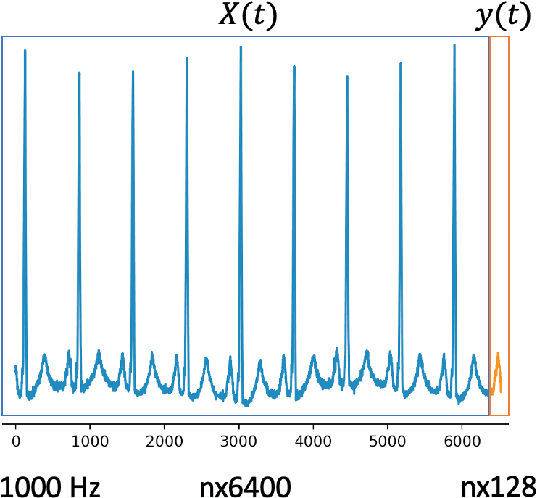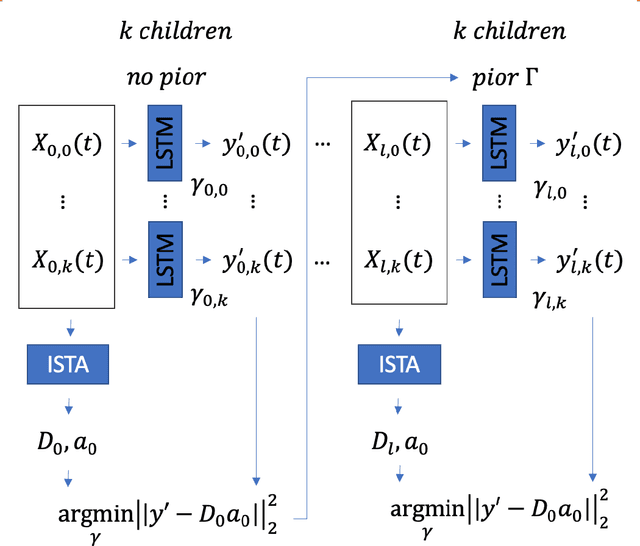EvoSTS Forecasting: Evolutionary Sparse Time-Series Forecasting
Paper and Code
Apr 14, 2022



In this work, we highlight our novel evolutionary sparse time-series forecasting algorithm also known as EvoSTS. The algorithm attempts to evolutionary prioritize weights of Long Short-Term Memory (LSTM) Network that best minimize the reconstruction loss of a predicted signal using a learned sparse coded dictionary. In each generation of our evolutionary algorithm, a set number of children with the same initial weights are spawned. Each child undergoes a training step and adjusts their weights on the same data. Due to stochastic back-propagation, the set of children has a variety of weights with different levels of performance. The weights that best minimize the reconstruction loss with a given signal dictionary are passed to the next generation. The predictions from the best-performing weights of the first and last generation are compared. We found improvements while comparing the weights of these two generations. However, due to several confounding parameters and hyperparameter limitations, some of the weights had negligible improvements. To the best of our knowledge, this is the first attempt to use sparse coding in this way to optimize time series forecasting model weights, such as those of an LSTM network.
 Add to Chrome
Add to Chrome Add to Firefox
Add to Firefox Add to Edge
Add to Edge